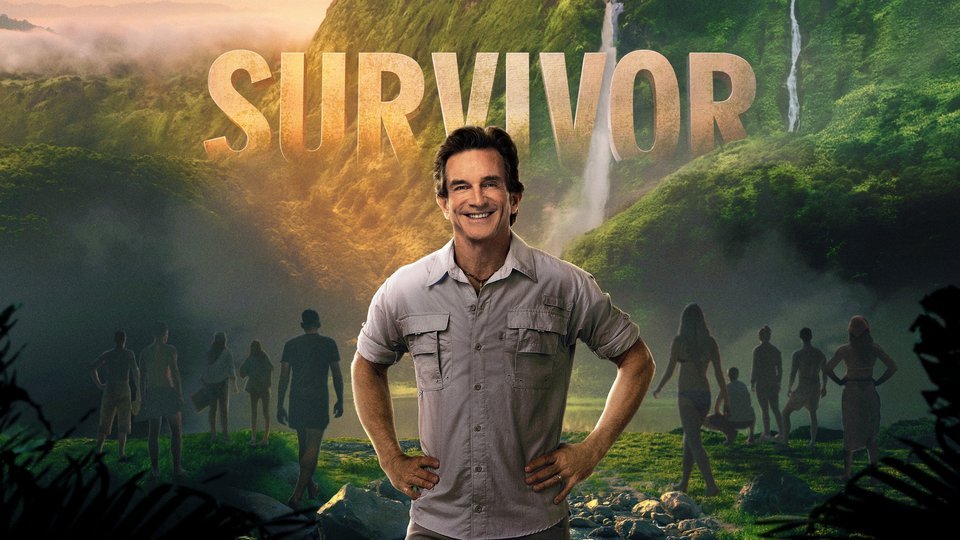Survivor Jury System vs. The American Jury System
Anne Reyna ‘23
Staff Writer
Pictured: This is what justice looks like.
Credit: TV Insider.
After forty-three seasons, Survivor is very much still alive and kicking. For those of you who have kept up with the popular reality show, please email me and let’s hang out. For those of you maybe just now getting into the franchise because of some popular seasons being put on Netflix, wow are you in for a wild ride. And for those of you who are like, “Wow, they’re still making that one deserted island reality show, and this random girl is still talking about it?”: Yes, they are, and yes, I am. The show is just as spectacular as it was that fateful first airing in the medieval year of our ancestors, 2000.
For those of you not familiar with the show, contestants, also known as “castaways,” are split into different tribes and camps, usually in a tropical setting. As a tribe, the castaways must weather the elements, build shelter, make fire, and gather/hunt for food for the entirety of the game. While doing all of this to survive, the castaways must also compete in grueling physical challenges to win immunity powers and other luxury rewards ranging from yacht parties to peanut butter and jelly sandwiches. Throughout the course of the game, players are voted off by their fellow tribe members, one by one.
Now here’s where things get really interesting. At about the halfway point, the voted-out players become the jury members, who ultimately go on to vote for and decide the winner of the game. That’s right, the people you schemed and plotted against—and subsequently went through hell with while facing the true villain of the story, nature— will ultimately have your fate in their hands. And this is where I make my case, your honor. I’ve been silent too long, but the time has come for me to speak my, and soon to be everyone else’s, truth. The Survivor jury system is in every way superior to the United States jury system, and it’s about time we talk about it.
When the U.S. legal system gaslights us into believing we have rights, such as the right to a trial made up of a “jury of our peers,” what they really mean is a jury made up of a bunch of randos[1] you’ve never seen or heard of before. Survivor, on the other hand, guarantees us this right. The Survivor jury members know the other contestants better than most of you know your next-door neighbor. They already know what it’s like to live with you, to break bread with you, and to fail and succeed with you, and they have a pretty good idea of your integrity and trustworthiness. At the end of the game, when the final tribal council begins, they are not just hearing about your case for the first time. They experienced in real time your actions and decision making. They are your true peers and equals in the game.
My next favorite part of the Survivor jury system is that it eliminates any unnecessary intermediaries, which would be referred to as “lawyers” in the U.S. system. The jury members get to question the remaining castaways at the final tribal council head-on. There are no gimmicks, no ploys, and no tactics from other actors. At the end of the game, you are forced to turn and face your peers that you have wronged and to take their questions. And if they don’t like your answers? Too bad. Jail, immediately.[2] The final contestants also get to hear what the jury is really thinking and get to respond or change their arguments in real time based on their reactions. The jury is not some black box like we see in the U.S. but is instead composed of active trial participants.
Next, every final contestant is compelled to testify for themselves. Everyone knows that if you don’t take the stand at your own trial in the U.S. system, you are hiding something. Whatever technical reason you have for not testifying, the jury and your God care not. The jury and final contestants can even interrupt each other and engage in heated debates. And for those of you like, “Isn’t this just total anarchy?”: No, of course not. There is a host who plays judge, and his name is Jeff. Everybody loves Jeff, so it’s fine.
Lastly, from the moment you enter the game, you know you’re on trial with your peers, and anything you do or say can and will be used against you. Unfortunately, in the U.S. legal system, they don’t inform you that this is a rule until you have already been arrested and they finally read you your Miranda rights. At least in Survivor, you know exactly what you’re getting yourself into from the jump.
Now, am I suggesting that every time a crime is committed, the U.S. should gather twelve other people and ship them off to a deserted island with the defendant? Yes. Thank you for your time.
---
agr5ag@virginia.edu

